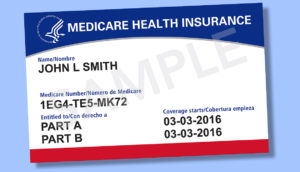 Today’s top story: 7 ways to manage Medicare drug costs. Also in the news: Prep for hiring your first employee with these 6 steps, how to have a retirement worth saving for, and how to buy and sell a house at the same time.
Today’s top story: 7 ways to manage Medicare drug costs. Also in the news: Prep for hiring your first employee with these 6 steps, how to have a retirement worth saving for, and how to buy and sell a house at the same time.
7 Ways to Manage Medicare Drug Costs
Medicare beneficiaries with pricey drugs can face high out-of-pocket costs. Here are some ways to lower the tab.
Ready to Hire Your First Employee? Prep With These 6 Steps
To hire successfully, business owners need to understand their finances, find professional support and more.
How to Have a Retirement Worth Saving For
A happy retirement isn’t all about money. Make a plan for health, social connection and day-to-day enjoyment.
How to Buy and Sell a House at the Same Time
 Today’s top story: What 6 money pros wish they’d known about credit cards. Also in the news: A new episode of the Smart Money podcast with Michelle Singletary, 3 ways to thrive with teenage workers in a tight job market, and when it can be a good idea to co-sign for your young adult.
Today’s top story: What 6 money pros wish they’d known about credit cards. Also in the news: A new episode of the Smart Money podcast with Michelle Singletary, 3 ways to thrive with teenage workers in a tight job market, and when it can be a good idea to co-sign for your young adult.  Today’s top story: How digital estate planning can protect your online life. Also in the news: How to afford the summer of your dreams by building a budget, child tax credits start hitting US families’ bank accounts, and why you should negotiate your real estate agent’s commission in a hot market.
Today’s top story: How digital estate planning can protect your online life. Also in the news: How to afford the summer of your dreams by building a budget, child tax credits start hitting US families’ bank accounts, and why you should negotiate your real estate agent’s commission in a hot market.